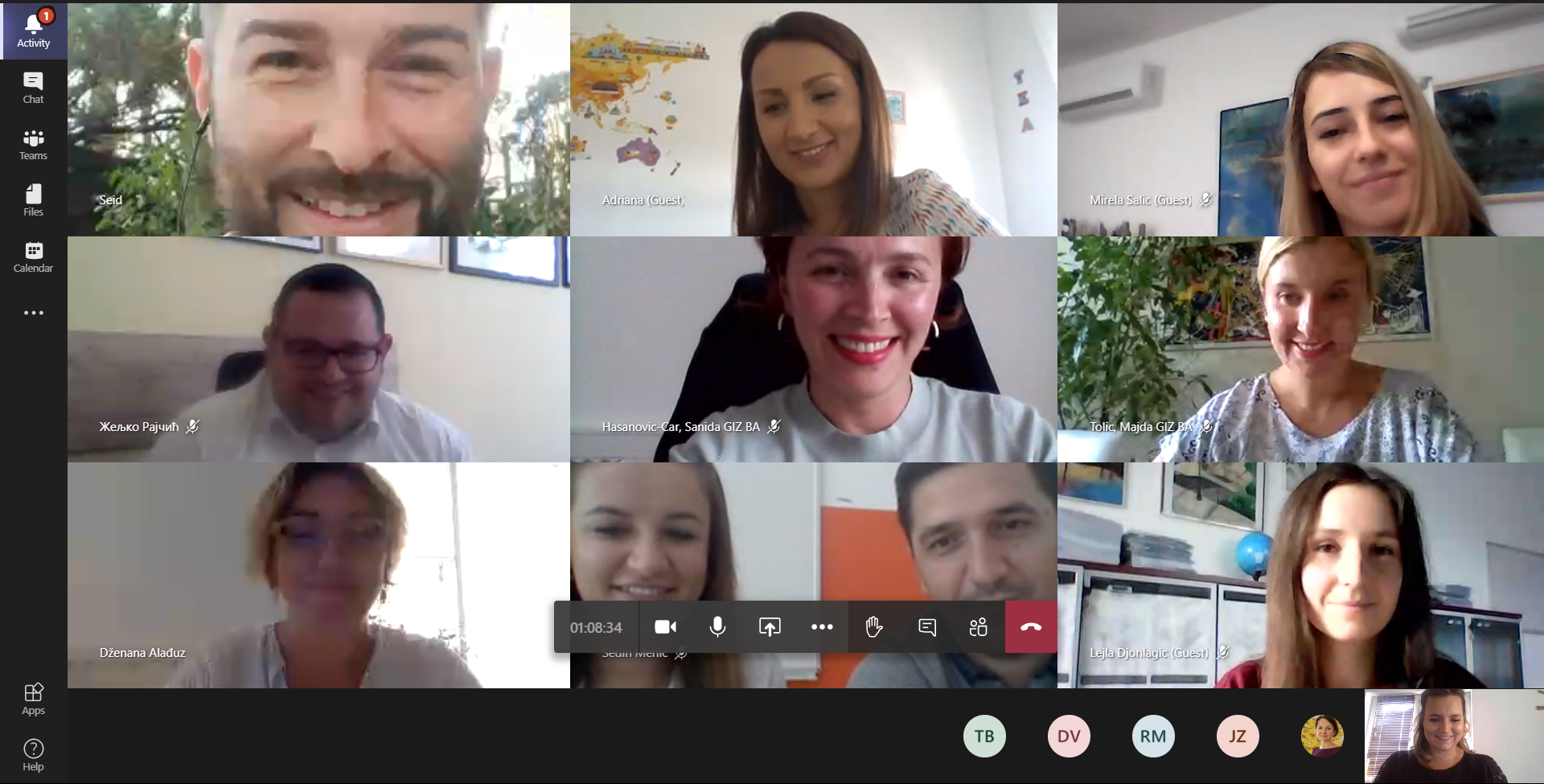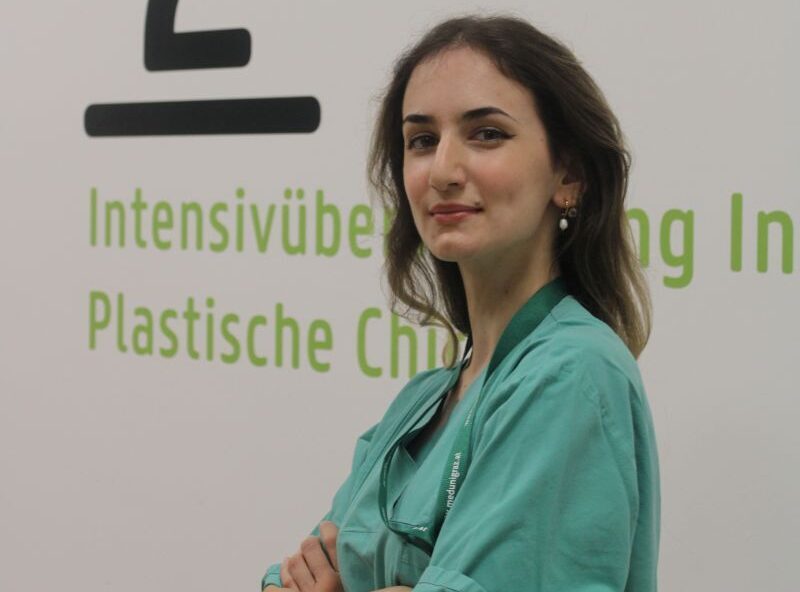The allocation of students to practical trainings at companies in Bosnia-Podrinje Canton Goražde had so far been based on an agreement between the school principle and company representatives as part of an informal process. In the opinion of experts, such a selection procedure can be improved, since the potential of a professionally organised selection process is not used. That was the reason to organize an online workshop entitled on selection of students for Work-Based Learning on the example of Serbia within the project ”IDEAL – Improving and Developing the Educational System for Plastic Processing Operators in Bosnia and Herzegovina”.
“PREVENT COMPONENTS” d.o.o. Goražde, Hastor Foundation and the Deutsche Gesellschaft für Internationale Zusammenarbeit (GIZ) are implementing the project ”IDEAL – Improving and Developing the Educational System for Plastic Processing Operators in Bosnia and Herzegovina” Partnership with company Prevent Components d.o.o. Goražde is part of the develoPPP.de programme commissioned by the German Federal Ministry for Economic Cooperation and Development (BMZ).
Based on examples of companies Robert Bosch d.o.o., Continental Subotica and the Technical School “Ivan Sarić” from Serbia, workshop participants had an opportunity to become acquainted with the successful organisation and implementation of the dual education and process of selection of students in which companies and students jointly choose the place for work-based learning.
Željko Rajčić, the principal of the Technical School “Ivan Sarić”, which started implementing the dual education system in 2014 and in which as many as 80% of first-generation students found a job, shared his experience regarding the Rulebook on Allocation of Students for Work-Based Learning.
“Teachers, members of the team for career orientation of dual education students, organise presentations of companies for students and parents/legal guardians and also prepare the students for interviews. The allocation of students is implemented by company representatives, practical training organisers and expert associates based on students’ wishes and companies’ needs for certain students. The members of the team for career orientation of dual education students organise interviews with students at the school. The interviews are held by companies with the obligatory presence of parents/legal guardians or a pedagogue and psychologist”, says Rajčić and adds that this rulebook was introduced because they did not wish to force students to do their trainings at companies they do not like.
Particularly proud of female students
The representatives of the company Robert Bosch d.o.o. also shared their experience in the organisation of dual education and process of selection of students for work-based learning at their factory in Pećinci. The factory produces windscreen wipers, windscreen wiper motors, wiper blades and wiper holders. The selection of students for practical training at their company takes place in compliance with the Rulebook on Allocation of Students for Work-Based Learning. It is important to stress that the company Bosch, just as its founder, Robert Bosch, has been a pioneer in dual education since its establishment 135 years ago and that the same model is applied throughout the world. Bosch operates through its 440 companies and employs 400,000 persons throughout the world.
“The Bosch factory in Serbia started operating in 2013. We have participated in the programme since 2014. We are very successful and are proud of this. The dual education programme is particularly important for us, because we help develop the education system, support the education in the local community and also ensure the future operations of our company”, says Adriana Kovčin, a HR marketing specialist at Robert Bosch d.o.o.
Her colleague, a dual education supervisor, Vladan Doljančević, says that Bosch in Serbia has had a dual education trainer since the very beginning.
“In 2014, we started implementing a new educational profile, industrial mechanic, and 10 students successfully completed this educational programme. We offered all of them a job at our company and we were very proud when all 10 of them accepted it. This year, we will have the sixth generation of dual education students. We are proud of the fact that 20% of these students are female students”, says Doljančević.
In addition to acquiring knowledge through practical training, students also have the possibility to attend extracurricular activities, says Marko Radović, who is also a dual education supervisor at the company. “Sports activities, trainings, visits to museums, company events, class trips. You cannot finish a year without a class trip!”
The Rulebook gives an insight into the interest in occupations
The importance of dual education in Serbia has also been recognised by the company Continental Subotica, which produces car tires, automobile industry pipes and commercial.
The brand Continental that this company is part of operates in 59 countries of the world.
“We have been participating in dual education since 2015 and have started discussing dual education with GIZ and the Technical School “Ivan Sarić”. Given the fact that we are a German company, we fully support this education format that exists everywhere in the world. We at Continental believe that a synergy between practical knowledge and formal education constitutes the winning combination for better employability”, says Tanja Božić, a HR business partner from the company Continental Subotica.
Jelena Zec, who is also a HR business partner at the company Continental Subotica, says that the key issue regarding the Rulebook on Allocation of Students to Work-Based Learning is the focus on the tripartite cooperation between the school, company and students and parents.
“The most important thing for us is the opportunity to present the company and meet students that we will cooperate with. The interviews with students are important, because they enable us to check to what extent they are ready to become part of our team”, says Zec.
The Head of Project “Dialogue on Employment Creation, Initiative and Dual Education (DECIDE)” from GIZ Serbia, Ivan Stojanović, says that dual education enables students acquire knowledge, attitudes and skills.
“The attitudes acquired at companies, where students have an opportunity to learn from their older colleagues, are extremely important in the process of education and maturing of young people. The dedication to work-based learning and an appropriate work ethic are highly appreciated by companies. Students are able to identify their opportunities and perspectives they should follow. The work at companies is an invaluable experience for them and if we add a financial allowance to this, it is an extremely important thing for them, and for many families it would be an important source of income”, says Stojanović.
Opportunities for progress in Bosnia and Herzegovina
Prevent COMPONENTS and GIZ have achieved a lot regarding the dual organized vocational education for the occupation plastic processing operator. However, there is always room for improvement, and this exchange of experiences with successful schools and companies from Serbia is only an additional motivation for further improvement of existing practices, says Seid Fijuljanin, the Head of the Foundation Hastor.
“We really have to thank colleagues from Serbia for the exchange of experiences. I am delighted with the activities of the Technical School “Ivan Sarić” and the company Continental Subotica and “Robert Bosch d.o.o.”. These companies are making logical investments, they know what it means to invest in the education of youth”, says Fijuljanin.
Such examples are only a motivation to work even more on the improvement of dual organized vocational education in Bosnia and Herzegovina, and the exchange of experiences with countries such as Serbia, which have progressed more, is an excellent start for further improvement of the existing system and activities in Bosnia and Herzegovina.




